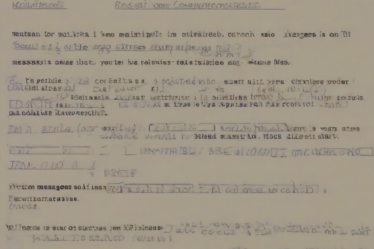
Navigating the World of Commercial Auto Insurance Brokers: A Comprehensive Guide
The world of commercial auto insurance can be complex and overwhelming, especially for business owners juggling numerous responsibilities. Understanding the intricacies of policies, coverage options, and finding the right price can feel like navigating a minefield. This is where the expertise of a commercial auto insurance broker becomes invaluable. This comprehensive guide delves into the role of a commercial auto insurance broker, providing insights into their functions, benefits, and how to choose the right one for your business needs.
Understanding the Role of a Commercial Auto Insurance Broker
Unlike insurance agents who represent a single insurance company, commercial auto insurance brokers act as independent advisors. They work with numerous insurance carriers, allowing them to compare policies and coverage options from various providers to find the best fit for their clients. This impartial approach ensures businesses receive unbiased recommendations based on their specific requirements and risk profiles.
- Policy Comparison and Selection: Brokers leverage their extensive network of insurance companies to access a wide range of policies. They meticulously compare premiums, coverage limits, deductibles, and other policy features to identify the most suitable and cost-effective option.
- Expert Advice and Guidance: Navigating the complex world of commercial auto insurance requires specialized knowledge. Brokers provide expert advice on policy selection, coverage needs, and risk management strategies. They can explain complex terminology and help businesses understand their policy’s implications.
- Negotiating Favorable Terms: Brokers possess strong negotiating skills and leverage their relationships with insurance carriers to negotiate better premiums and policy terms for their clients. Their experience often translates into significant savings.
- Claims Assistance: In the event of an accident or claim, a broker can provide invaluable support. They can guide businesses through the claims process, ensuring timely and efficient processing and maximizing claim payouts.
- Policy Management and Renewal: Brokers handle the administrative tasks associated with policy management, including renewals, updates, and modifications. They ensure policies remain current and reflect the changing needs of the business.
- Risk Management Strategies: Beyond policy procurement, brokers often provide advice on risk management strategies to help businesses mitigate potential accidents and reduce insurance premiums. This can include safety training recommendations or fleet management suggestions.
Benefits of Using a Commercial Auto Insurance Broker
Engaging a commercial auto insurance broker offers a multitude of benefits for businesses of all sizes. These advantages often outweigh the potential cost of the broker’s services.
- Access to Wider Market: Brokers have access to a vast network of insurers, providing businesses with a significantly wider range of policy options compared to working directly with individual insurers.
- Cost Savings: By comparing policies from multiple carriers and negotiating favorable terms, brokers can help businesses secure significant cost savings on their premiums.
- Time Savings: Finding the right insurance policy can be time-consuming. Brokers handle the research, comparison, and negotiation processes, freeing up valuable time for business owners to focus on core operations.
- Expert Guidance: The specialized knowledge and experience of brokers ensure businesses select policies that adequately cover their specific risks and exposures.
- Personalized Service: Brokers provide personalized attention and tailor their services to meet the unique needs of individual businesses.
- Objective Advice: Brokers act as independent advisors, providing unbiased recommendations free from the influence of any single insurance company.
- Streamlined Claims Process: Brokers assist with claims processing, simplifying what can often be a complex and frustrating experience.
Choosing the Right Commercial Auto Insurance Broker
Selecting the appropriate commercial auto insurance broker is a crucial decision that can significantly impact a business’s insurance costs and coverage. Consider the following factors when making your choice:
- Experience and Expertise: Look for brokers with extensive experience in the commercial auto insurance sector and a proven track record of success. Inquire about their experience with businesses similar to yours.
- Market Access: Assess the broker’s network of insurance carriers. A larger network provides greater access to a wider range of policies and potentially more competitive pricing.
- Client Testimonials and References: Check reviews and testimonials from previous clients to gauge their satisfaction with the broker’s services. Request references and contact them directly to obtain firsthand feedback.
- Licensing and Accreditation: Ensure the broker holds the necessary licenses and accreditations to operate legally in your jurisdiction.
- Communication and Responsiveness: Effective communication is vital. Choose a broker who is readily available, responds promptly to inquiries, and keeps you informed throughout the insurance process.
- Fees and Compensation: Understand how the broker is compensated. Most brokers receive commissions from insurance companies, but transparency regarding fees and compensation is essential.
- Specialty and Niche Expertise: Some brokers specialize in specific industries or types of commercial vehicles. If your business has unique insurance needs, consider working with a broker specializing in your industry.
Types of Commercial Auto Insurance Coverage
Commercial auto insurance policies encompass a range of coverage options to protect businesses from various risks associated with operating vehicles. Understanding these coverages is critical in selecting the right policy for your specific needs.
- Liability Coverage: This coverage protects your business if you are at fault in an accident that causes injury or damage to others. It covers medical expenses, property damage, and legal costs.
- Collision Coverage: This coverage pays for repairs or replacement of your vehicle if it’s damaged in an accident, regardless of fault.
- Comprehensive Coverage: This coverage protects your vehicle against damage from events other than collisions, such as theft, vandalism, fire, or natural disasters.
- Uninsured/Underinsured Motorist Coverage: This coverage protects you if you are involved in an accident caused by an uninsured or underinsured driver.
- Medical Payments Coverage: This coverage pays for medical expenses for you and your passengers, regardless of fault.
- Property Damage Coverage: This coverage pays for repairs or replacement of your vehicle if it’s damaged in an accident, regardless of fault.
- Bobtail Coverage: This coverage is specifically for owner-operators who lease their trucks to a carrier and need coverage when they are not under dispatch.
- Non-Trucking Coverage: This coverage protects owner-operators while using their personal vehicles for personal use, and not while operating under the authority of a motor carrier.
- General Liability: This coverage protects your business from claims of bodily injury or property damage caused by your operations, even if not directly related to vehicle use.
Factors Affecting Commercial Auto Insurance Premiums
Several factors influence the cost of commercial auto insurance premiums. Understanding these factors can help businesses manage their insurance costs effectively.
- Type of Vehicle: The type and size of vehicles used in your business significantly impact premiums. Larger vehicles and those with higher risk profiles typically command higher premiums.
- Driver History: The driving records of your employees are carefully scrutinized. Accidents, traffic violations, and DUI convictions can significantly increase premiums.
- Annual Mileage: The total annual mileage driven by your vehicles impacts premiums. Higher mileage typically translates into higher premiums due to increased risk.
- Location: Geographic location is a crucial factor. Areas with higher accident rates or higher crime rates tend to have higher premiums.
- Business Type and Industry: Different industries carry varying levels of risk. Businesses in high-risk industries may face higher premiums.
- Safety Programs: Implementing robust safety programs and driver training can demonstrate a commitment to risk mitigation, potentially leading to lower premiums.
- Claims History: A history of frequent claims can substantially increase future premiums. Effective risk management and preventative measures can help reduce claims.
- Deductibles: Choosing higher deductibles can lower premiums, but also means you will pay more out-of-pocket in case of a claim.
The Future of Commercial Auto Insurance Brokerage
The commercial auto insurance landscape is constantly evolving, with technological advancements and changing market dynamics shaping the future of brokerage. We can expect to see continued growth in the use of technology to streamline processes, improve efficiency, and enhance customer service. The use of data analytics and AI will likely play an increasingly important role in risk assessment, pricing, and claims management.
Ultimately, the role of the commercial auto insurance broker will remain critical. While technology can automate certain tasks, the human element of expert advice, personalized service, and strategic guidance will continue to be highly valued by businesses seeking comprehensive and cost-effective insurance solutions.


